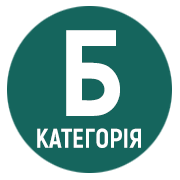МОРЕ ЯК ПОЛЕ: АРХЕТИПНІ ТОПОСИ БУТТЯ У ПОВІСТІ Е. ХЕМІНГУЕЯ “СТАРИЙ І МОРЕ”
DOI:
https://doi.org/10.31494/2412-933X-2019-1-9-165-174Ключові слова:
повість Е. Хемінгуея “Старий і море”, концепт “Дім – Поле – Храм”, топос “Поле”.Анотація
Запропонована стаття дає можливість нового прочитання повісті Е. Хемінгуея “Старий і море”. Маємо за мету поєднання літературознавчого погляду на текст літературного твору з його аналізом за допомогою інтердисциплінарної методології із залученням методу архетипів та компаративних студій, що дозволяє більш “стереоскопічно” бачити зображені автором колізії та героїв. Для цього використано архетипний концепт “Дім – Поле – Храм”, універсальність якого була доведена працями К. Юнґа, М. Ґайдеґґера, Г. Гачева, С. Кримського. Таким чином до аналізу художнього тексту залучаються певні філософські категорії. Зазначені концептні топоси є буттєвою основою епічного твору, без її усвідомлення зображені у творі події сприймаються “площинно”. У повісті Е. Хемінгуея представлені усі три топоси буття, але якщо “Дім” та “Храм” оприявлені тільки окремими епізодами (що загалом характерно для творів такого обсягу), то натомість топос “Поле”, який у контексті повісті оприявнюється через Море – найбільш повно. Море як життєво важливий простір для головного героя, старого рибалки Сантьяго, містить усі ознаки топосу “Поле” із притаманною для нього бінарністю семантики: це, з одного боку, і своєрідний, життєво важливий “ріг достатку” для Сантьяго та йому подібних, як для хлібороба земля, на якій він вирощує врожай, і, з іншого боку, – це світ чужий, який завжди залишається до кінця не пізнаним, загадковим, це Поле боротьби – з негодою, стихією, “великою рибою”, акулами, навіть із самим собою, як це зображено в аналізованому творі. Зазначена методологія вже використовувалася авторкою для аналізу окремих літературних творів, в основному українських авторів. Повість Е. Хемінгуея з такого погляду проаналізована вперше, і в перспективі може бути застосований для прочитання інших його творів, як і творів інших авторів.
Посилання
Більченко Є. В. Мотив чужого у формуванні етнокультурної ідентичності українців / Є. В. Більченко // Вісник Чернігівського державного пед. університету. — Вип. 75. Серія «Філософські науки».— Чернігів, 2010. — С. 84–88.
Гачев Г. Национальные образы мира: Космо – Психо – Логос / Г. Гачев. — М. : Прогресс — Культура, 1995. — 480 с.
Квіт С. Герменевтика стилю / С. Квіт. — К. : Видавничий дім «Києво-Могилянська академія», 2011. — 143 с.
Кирилюк О. С. Універсально-культурні структури міфологічних підвалин масової політичної свідомості / О. С. Кирилюк / Універсальні виміри культури. — Одеса, 2000. — С. 27–38.
Копистянська Н. Час і простір у мистецтві слова / Н. Копистянська. — Львів : ПАІС, 2012. — 344 с.
Кримський С. Архетипи української культури / С. Кримський // Під сигнатурою Софії. — К. : Видавничий дім «Києво-Могилянська академія», 2008. — С. 301–319.
Кримський С. Архетипи української ментальності / С. Кримський // Проблеми теорії ментальності ; відп. ред. М. В. Попович. — К. : Наукова думка, 2006. — С. 273–301.
Кримський С. Дім – Поле – Храм / С. Кримський // Про софійність, правду, смисли людського буття : збірн. наук.-публ. і філос. статей / Сергій Кримський. — К. : ІФНАНУ, 2010. — С. 426–439.
Кримський С. Ментальні цінності в контексті виборчої кампанії / С. Кримський // Газета «День». — 2004. — 3 серпня. — С. 1, 4.
Личковах В. А. Філософія етнокультури як новітній напрям народознавства / В. А. Личковах // Вісник Чернігівського державного
університету. Другі Кулішеві читання з філософії етнокультури. Вип. 75. Серія «Філософські науки». — Чернігів, 2010. — С. 3–9.
Могильний А. Пісня Гольфстріму / А. Могильний // Е. Хемінгуей. Старий і море. — К. : Видавничо-виробнича фірма “Котигорошко” ЛТД, 1993. — С. 5–8.
Наливайко Д. Літературна компаративістика вчора і сьогодні / Д. Наливайко // Сучасна літературна компаративістика: стратегії і методи : антологія ; за заг. ред. Д. Наливайка. — К. : Видавничий дім «Києво-Могилянська академія», 2009. — С. 5–42.
Семенюк Г. Ф. Літературна майстерність письменника : підручник для студ. вищих навч. закладів / Г. Ф. Семенюк, А. Б. Гуляк, Н. В. Науменко. — К. : КНУ ім. Тараса Шевченка, 2012. — 367 с.
Хайдеггер М. Бытие и время / Мартин Хайдеггер ; пер. с нем. В. В. Бибихина. — СПб. : Наука, 2002. — 451 с.
Хемінгуей Е. Старий море / Е. Хемінгуей. — К. : Видавничо-виробнича фірма “Котигорошко” ЛТД, 1993. — С. 9–70.
Шпенглер О. Закат Европы: очерки морфологии мировой истории : в 2 т. Т. 2 : Всемирно-исторические перспективы / О. Шпенглер ; пер. с нем. и примеч. И. И. Мананькова. — М. : Мысль, 1998. — 606 с.
Юнґ К. Ґ. Архетипи і колективне несвідоме / К. Ґ. Юнґ ; пер. з нім. Катерина Котюк; наук. ред. укр. видання Олег Фешовець. — Львів : Астролябія, 2013. — 588 с.






